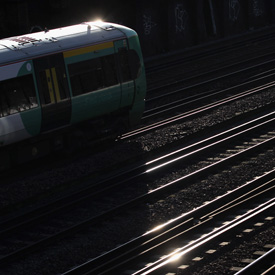Business leaders join unions to lobby for high-speed rail
A coalition of business figures, economists and union bosses press the government to move ahead with a controversial high-speed rail link between London and Birmingham.

The final decision on whether to go ahead with the high-speed rail link – known as HS2 – has been postponed until this month. Many Conservative MPs are under pressure from their own constituents – the line would go through Tory heartland in the Cotswolds and has been the subject of bitter campaigning by those opposed to the plans.
People living in the area say it would destroy swathes of rural England and that the proposed benefits are not worth what would be lost.
Now, in letters to the Financial Times, the Daily Telegraph and the Guardian, the group have added their voices to the debate, saying that the proposed HS2 high-speed rail link between London and Birmingham would be good for jobs and growth.
‘UK cannot afford not to invest in HSR’
Signatories include John Longworth, director general of the British Chamber of Commerce, as well as Bob Crow, general secretary of rail union the RMT, and Frances O’Grady, deputy general secretary of Unite.
The union leaders urged the government in their letter to the Guardian to ignore the “wealthy ideological opponents” of HS2. They say the planned line would immediately bring thousands of engineering and construction jobs to the UK, as well as longer-term roles within the rail industry.
They add: “HSR has been proven as an effective low-carbon mode of transport, creating a stronger economy, a boom for employment and a higher quality of life. Simply put, the UK cannot afford not to invest in HSR.”
The 100-mile rail link, due to be constructed between 2016 and 2026, aims to cut the London to Birmingham journey time to 49 minutes. A second route, taking the line north of Birmingham to both north west and north east England and then on to Scotland, is possible once the route is completed in around 2026.
Transport Secretary Justine Greening had been expected to make a final announcement before parliament finished for the Christmas break, but the decision was delayed until the new year, with Ms Greening understood to be considering whether a £500m tunnel should be bored through the Chiltern Hills to minimise impact on the landscape.